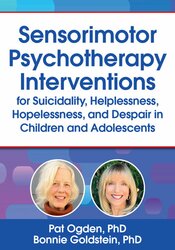Inscrivez-vous dès aujourd'hui à un cours en ligne pour un apprentissage flexible, à votre rythme, sans avoir à respecter un horaire fixe.


-
 Cours en ligneQue vous soyez novice en matière de thérapie Internal Family Systems (IFS) ou que vous pratiquiez ce modèle depuis des années, inscrivez-vous et découvrez comment affiner et personnaliser le modèle afin qu'il s'adapte aux besoins uniques de vos clients.Valeur : 1 140,66 € *(275,99 €)€137,99Que vous soyez novice en matière de thérapie Internal Family Systems (IFS) ou que vous pratiquiez ce modèle depuis des années, inscrivez-vous et découvrez comment affiner et personnaliser le modèle afin qu'il s'adapte aux besoins uniques de vos clients.21 oct. 2020Cours en ligneValeur : 1 140,66 € *(275,99 €)€137,99Que vous soyez novice en matière de thérapie Internal Family Systems (IFS) ou que vous pratiquiez ce modèle depuis des années, inscrivez-vous et découvrez comment affiner et personnaliser le modèle afin qu'il s'adapte aux besoins uniques de vos clients.Valeur : 1 140,66 € *(275,99 €)€137,99
Cours en ligneQue vous soyez novice en matière de thérapie Internal Family Systems (IFS) ou que vous pratiquiez ce modèle depuis des années, inscrivez-vous et découvrez comment affiner et personnaliser le modèle afin qu'il s'adapte aux besoins uniques de vos clients.Valeur : 1 140,66 € *(275,99 €)€137,99Que vous soyez novice en matière de thérapie Internal Family Systems (IFS) ou que vous pratiquiez ce modèle depuis des années, inscrivez-vous et découvrez comment affiner et personnaliser le modèle afin qu'il s'adapte aux besoins uniques de vos clients.21 oct. 2020Cours en ligneValeur : 1 140,66 € *(275,99 €)€137,99Que vous soyez novice en matière de thérapie Internal Family Systems (IFS) ou que vous pratiquiez ce modèle depuis des années, inscrivez-vous et découvrez comment affiner et personnaliser le modèle afin qu'il s'adapte aux besoins uniques de vos clients.Valeur : 1 140,66 € *(275,99 €)€137,99 -
 Cours en ligneGabor Maté va au-delà de l'instruction et démontre exactement comment il utilise la recherche de la compassion pour faciliter la guérison. Regardez-le mettre en œuvre sa méthode unique avec plus de 10 membres de l'auditoire.Valeur : 689,89 € *(275,99 €)€137,99Gabor Maté va au-delà de l'instruction et démontre exactement comment il utilise la recherche de la compassion pour faciliter la guérison. Regardez-le mettre en œuvre sa méthode unique avec plus de 10 membres de l'auditoire.15 juillet, 2022Cours en ligneValeur : 689,89 € *(275,99 €)€137,99Gabor Maté va au-delà de l'instruction et démontre exactement comment il utilise la recherche de la compassion pour faciliter la guérison. Regardez-le mettre en œuvre sa méthode unique avec plus de 10 membres de l'auditoire.Valeur : 689,89 € *(275,99 €)€137,99
Cours en ligneGabor Maté va au-delà de l'instruction et démontre exactement comment il utilise la recherche de la compassion pour faciliter la guérison. Regardez-le mettre en œuvre sa méthode unique avec plus de 10 membres de l'auditoire.Valeur : 689,89 € *(275,99 €)€137,99Gabor Maté va au-delà de l'instruction et démontre exactement comment il utilise la recherche de la compassion pour faciliter la guérison. Regardez-le mettre en œuvre sa méthode unique avec plus de 10 membres de l'auditoire.15 juillet, 2022Cours en ligneValeur : 689,89 € *(275,99 €)€137,99Gabor Maté va au-delà de l'instruction et démontre exactement comment il utilise la recherche de la compassion pour faciliter la guérison. Regardez-le mettre en œuvre sa méthode unique avec plus de 10 membres de l'auditoire.Valeur : 689,89 € *(275,99 €)€137,99 -
Devenir affilié
Sujets d'actualité :












